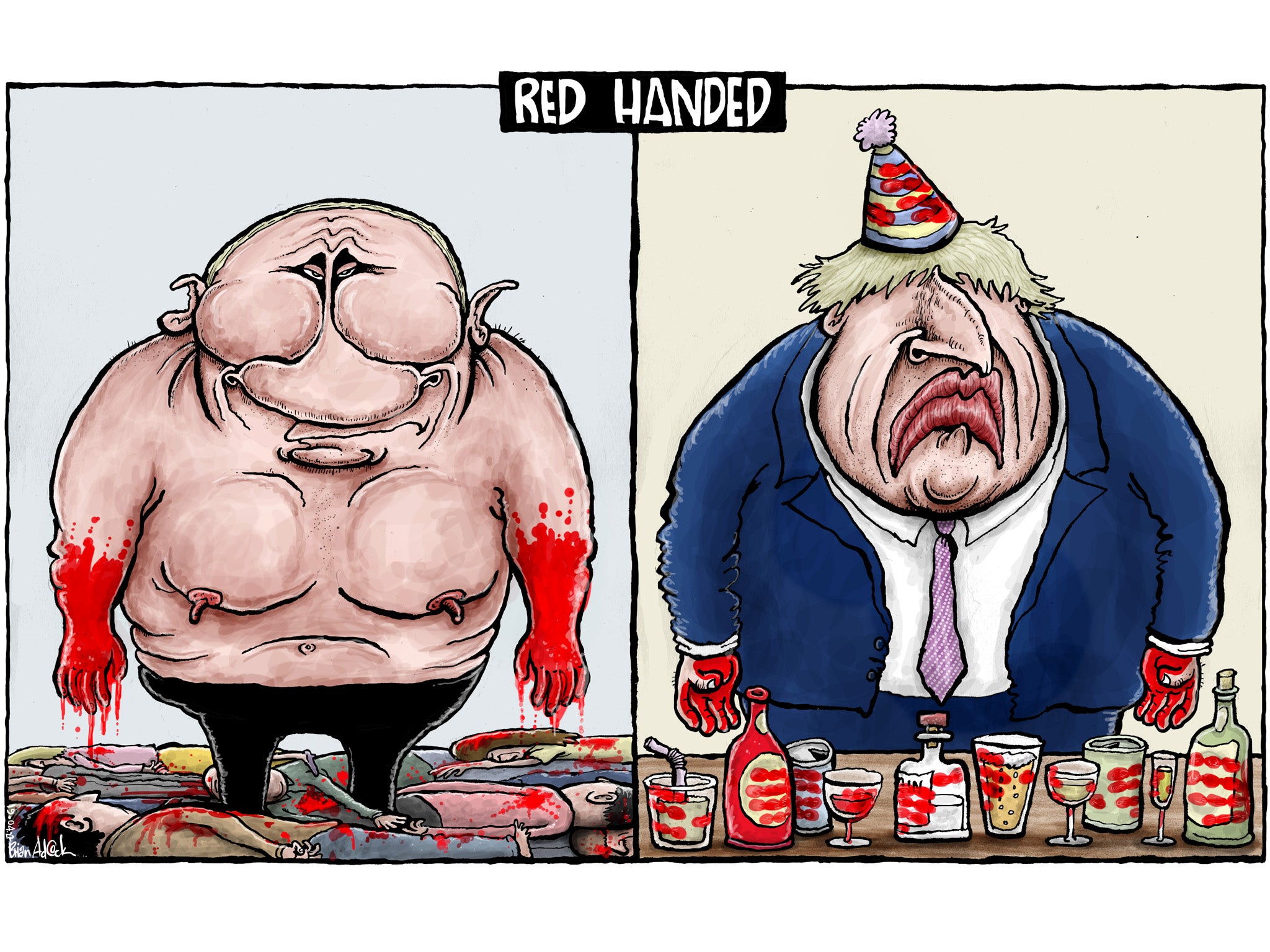Boris Johnson is expected to do his best to move beyond his Partygate fine as parliament returns and he faces angry MPs. It will not be so simple.
Yes, the prime minister will offer another apology for his actions when he addresses the Commons, and say that he recognises the strength of feeling across the nation, but again repeat that he did not realise that he was in breach of Covid-19 rules by attending a birthday party in No 10. Emphasis will then be placed on the war in Ukraine – and Britain’s place in the international response – and the cost of living crisis facing the nation.
Both are important issues that need due attention from the government, but that does not mean that Partygate should instantly fade into the background. Opposition parties have made it clear that Mr Johnson should face a penalty for statements to the Commons that no Covid rules were broken in No 10 in the wake of his fine – and reports that the prime minister was apparently serving up drinks at another Downing Street event in November 2020 will not have helped matters.
This all plays into a wider point. Parliament is there to scrutinise the work of ministers – and the executive power they possess – and hold them to account for their actions, but that scrutiny is weakened if the required level of candour is not there.
Opposition parties are said to be discussing a formal measure to censure Mr Johnson – possibly a motion either holding him in contempt of parliament, or a vote to refer the prime minister to the privileges committee, which would investigate whether he had misled the house by claiming that no rules were broken. Either measure would be unlikely to succeed, given the Conservative majority, but it would put Tory MPs in the position of having to publicly back their leader – or not – knowing that there is a lot of public anger.
To keep up to speed with all the latest opinions and comment, sign up to our free weekly Voices Dispatches newsletter by clicking here
That is not to say that Labour, the Liberal Democrats and other parties involved would not take advantage of such a vote to highlight the choices of backbenchers ahead of local elections next month, but there is plenty to be said for defending the practice of proper parliamentary scrutiny.
Beyond parliament, it will then be up to the voters as to whether the prime minister and his government get to return to “business as usual” swiftly – and how long the nation’s collective memory is. The next couple of days in parliament are set to be uncomfortable for Mr Johnson, as he will also have to contend with Prime Minister’s Questions against Labour’s Sir Keir Starmer on Wednesday, while the Conservatives may feel some pain at the ballot box in May. However, the next general election is some time away.
Mr Johnson – and several of his ministerial colleagues – have made it clear that he wants to move on from Partygate. Parliamentary process may make that difficult in the short term, but then the decision is up to the voting public.




Join our commenting forum
Join thought-provoking conversations, follow other Independent readers and see their replies
Comments